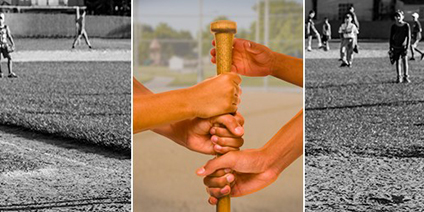Safe

SAFE
For thirty years, I’ve owned a medium-sized fireproof safe with an old-fashioned dial lock. In the old days, when my kids were young, that safe contained a collection of handguns and ammunition in assorted calibers. As my taste in hobbies evolved, I traded off most of those handguns for used woodworking equipment. I rarely open that safe anymore – partly because it’s too painful to get down on my hands and knees to see the dial at eye level, and partly because it takes me three tries to get the combination right.
Today, the old safe contains a menagerie of mismatched handgun cartridges and a stack of papers that I, at some point, endowed with the attribute of “importance”. It occurs to me that in the event of a major house fire, the well-built safe would protect those papers from the flames. However, the intense heat would detonate the gun powder in those old shells and instantly atomize the stack of “important” papers within that airtight chamber.
Thankfully, all my genuinely important papers are stuffed neatly into file drawers around my home where they can be more easily accessed (and more efficiently destroyed by natural disaster).
That brings me to the real topic: How safe is your safe? More important, why are we so obsessed with safety? Our culture has degenerated to the point where the average person values society singularly in terms of the safety it affords them. I’m not just talking about a system of laws that protects us from the vices of society’s baser elements (and sometimes ourselves). I’m talking about the concept that the government is somehow responsible for our individual welfare and safety.
Before you cancel me, do this simple experiment. Walk out on your patio between 9:00AM and 9:00PM. Now, listen. You can actually hear the hum of those giga-volts coursing their way through that overhead spiderweb to provide power for a million air conditioners. I can guarantee that before Summer’s end, the abnormally high demand for electricity will force at least local, if not grid-wide, brownouts.
And when that happens, those great heralds of truth, the mainstream media, will shout from the rooftops about the deaths of one or more unfortunate individuals, due to extreme heat “which the government could have prevented” — either by forcing the power companies to build redundant power plants and meet every spike in power requirements, or by forcing the power companies to shut down all their existing power plants in an effort to stem global warming.
Our great-great-great-grandparents migrated back and forth across the North American continent on foot, following rickety wagons piled high with their every belonging. Did the great plains contain fewer rattlesnakes in those pre-development days? Did the thick, uncut forests not contain “lions and tigers and bears, oh my”? Were those wagons not pulled by mules which William Faulkner described as animals who would “labor ten years willingly and patiently for you, for the privilege of kicking you once”, that single kick likely being fatal in the absence of 911-dispatched medical attention?
Those ancestors also felled trees, built houses, birthed cattle, and dug wells, all without the benefits of OSHA. They did all that while repelling ambushes by the native tenants of the land who viewed them as A) interlopers, B) potential slaves, C) a tasty food source, or D) all of the above. And, they did it all without the promise of a government-provided safety net (or electricity).
Honest Questions
When did electricity evolve from being a commodity of convenience to being a basic human right? At what point did we transition to a society of risk-averse entitlement junkies, dependent on Uncle Sam rather than our own stamina and persistence to determine our future? How do we recover our self-reliance and motivation if we’re hooked on the Fentanyl of victimhood and dependency? Do combination locks start with clockwise or counterclockwise rotation?
 If you have a reasonable answer to any of those questions, let’s have coffee and discuss it. Email me at guy@lawsoncomm.com. I’m not (solely) being a smart-aleck. Those are legitimate questions worth discussing. I’ll buy the coffee.
If you have a reasonable answer to any of those questions, let’s have coffee and discuss it. Email me at guy@lawsoncomm.com. I’m not (solely) being a smart-aleck. Those are legitimate questions worth discussing. I’ll buy the coffee.
![]()

Every morning in Africa, a gazelle wakes up. It knows it must run faster than the fastest lion, or it will be killed. Every morning a lion wakes up. It knows it must outrun the slowest gazelle, or it will starve to death. It doesn’t matter whether you are a lion or a gazelle. When the sun comes up, you better start running.
— Unknown

Did someone forward this newsletter to you after reading it themselves? Don’t settle for that!
CLICK HERE
to get a fresh, unused copy of this newsletter sent directly to you every Sunday morning. If you decide it stinks, you can always unsubscribe.
The History of the United States
(Second Edition). — Various Professors

I know I’ve recommended this before but it’s worth repeating. This is a fantastic series of lectures by various highly-recognized history professors with a refreshingly balanced perspective. On Audible, it’s free as part of the Great Courses Series. Don’t plan on listening to it in a single setting — it’s 37 hours long but it’s broken into 1-hour lectures by various individuals — but it’s incredibly interesting and informative if you’re out for a long walk or an even longer drive.
A meeting of great minds who think alike












